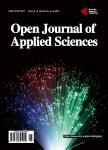Evaluation of Dosimetric Impact of Uncertainty of Measurement in Estimating External Radiotherapy Dose
Evaluation of Dosimetric Impact of Uncertainty of Measurement in Estimating External Radiotherapy Dose作者机构:Physics Department Kenyatta University Nairobi Kenya College of Health Physics Jomo Kenyatta University of Agriculture and Technology Juja Kenya
出 版 物:《Open Journal of Applied Sciences》 (应用科学(英文))
年 卷 期:2024年第14卷第8期
页 面:1985-1995页
学科分类:1002[医学-临床医学] 100214[医学-肿瘤学] 10[医学]
主 题:Absorbed Dose to Water Radiotherapy Uncertainty of Measurement Secondary Standards Dosimetry Laboratory Ionizing Chamber
摘 要:Cancer is a major societal public health and economic problem, responsible for one in every six deaths. Radiotherapy is the main technique of treatment for more than half of cancer patients. To achieve a successful outcome, the radiation dose must be delivered accurately and precisely to the tumor, within ± 5% accuracy. Smaller uncertainties are required for better treatment outcome. The objective of the study is to investigate the uncertainty of measurement of external radiotherapy beam using a standard ionization chamber under reference conditions. Clinical farmers type ionization chamber measurement was compared against the National Reference standard, by exposing it in a beam 60Co gamma source. The measurement set up was carried out according to IAEA TRS 498 protocol and uncertainty of measurement evaluated according to GUM TEDDOC-1585. Evaluation and analysis were done for the identified subjects of uncertainty contributors. The expanded uncertainty associated with 56 mGy/nC ND,W was found to be 0.9% corresponding to a confidence level of approximately 95% with a coverage factor of k = 2. The study established the impact of dosimetry uncertainty of measurement in estimating external radiotherapy dose. The investigation established that the largest contributor of uncertainty is the stability of the ionization chamber at 36%, followed by temperature at 22% and positioning of the chamber in the beam at 8%. The effect of pressure, electrometer, resolution, and reproducibility were found to be minimal to the overall uncertainty. The study indicate that there is no flawless measurement, as there are many prospective sources of variation. Measurement results have component of unreliability and should be regarded as best estimates of the true value. .



